The United States
and the
International
Criminal Court
The United States
and the
International
Criminal Court
National Security and
International Law
Edited by Sarah B. Sewall
and Carl Kaysen

ROWMAN & LITTLEFIELD PUBLISHERS, INC.
Published in the United States of America
by Rowman & Littlefield Publishers, Inc.
A wholly owned subsidiary of The Rowman & Littlefield Publishing Group, Inc.
4501 Forbes Boulevard, Suite 200, Lanham, Maryland 20706
www.rowmanlittlefield.com
PO Box 317
Oxford
OX2 9RU, UK
Copyright 2000 The American Academy of Arts and Sciences
All rights reserved. No part of this publication may be reproduced, stored in a retrieval system, or transmitted in any form or by any means, electronic, mechanical, photocopying, recording, or otherwise, without the prior permission of the publisher.
British Library Cataloguing in Publication Information Available
Library of Congress Cataloging-in-Publication Data
The United States and the international criminal court : national security and international law / edited by Sarah B. Sewall and Carl Kaysen.
p. cm.
Includes index.
ISBN: 978-0-7425-0135-5
1. International Criminal Court. 2. International criminal courts. 3. International offenses. 4. National securityUnited States. 5. Criminal jurisdictionUnited States. I. Sewall, Sarah B. II. Kaysen, Carl.
KZ6310.U55 2000
Printed in the United States of America
 The paper used in this publication meets the minimum requirements of American National Standard for Information SciencesPermanence of Paper for Printed Library Materials, ANSI/NISO Z39.481992.
The paper used in this publication meets the minimum requirements of American National Standard for Information SciencesPermanence of Paper for Printed Library Materials, ANSI/NISO Z39.481992.
To Susan Duncan Thomas
an extraordinary mother
who believes in justice and peace
The American Academy of
Arts and Sciences
Founded in 1780, the American Academy of Arts and Sciences is an international learned society with headquarters in Cambridge, Massachusetts. The Academy is composed of 3,300 fellows and 600 foreign honorary members representing the academic disciplines as well as the arts, business, and government. Through its multidisciplinary research projects, the Academy addresses major issues of both scholarly and public concern, including international affairs, economic and environmental issues, and the changing nature of higher education, science, and scholarship. The Academy publishes a quarterly journal, Daedalus; has regional offices at the University of Chicago and the University of California, Irvine; and oversees U.S. participation in the International Institute for Applied Systems Analysis (IIASA), located in Laxenburg, Austria, outside of Vienna.
The Academys Committee on International Security Studies (CISS), founded in 1982, oversees a diverse research program focusing on global security issues. Current and previous projects have included Small Arms and Light Weapons, Environmental Scarcities, State Capacity, and Civil Violence, and Emerging Norms of Justified Intervention. CISS oversees the activities of the U.S. Pugwash Committee, part of the international Pugwash Conferences on Science and World Affairs, which received the 1995 Nobel Peace Prize.
Among the Academys CISS publications are:
Light Weapons and Civil Conflict, edited by Jeffrey Boutwell and Michael T. Klare (1999)
Lethal Commerce: The Global Trade in Small Arms and Light Weapons, edited by Jeffrey Boutwell, Michael T. Klare, and Laura Reed (1995)
Israeli-Palestinian Security: Issues in the Permanent Status Negotiations, by Jeffrey Boutwell and Everett Mendelsohn (1995)
Collective Responses to Regional Problems: The Case of Latin America and the Caribbean, edited by Carl Kaysen, Robert A. Pastor, and Laura W. Reed (1994)
Emerging Norms of Justified Intervention, edited by Laura W. Reed and Carl Kaysen (1993)
Transition to Palestinian Self-Government: Practical Steps toward Israeli-Palestinian Peace, by Ann Mosely Lesch (1992)
Contents
Sarah B. Sewall, Carl Kaysen, and Michael P. Scharf
Leila Nadya Sadat
Richard J. Goldstone and Gary Jonathan Bass
Bartram S. Brown
Lawrence Weschler
David J. Scheffer
Ruth Wedgwood
Robinson O. Everett
William L. Nash
Samantha Power
Michael P. Scharf
Madeline Morris
Michael P. Scharf
Abram Chayes and Anne-Marie Slaughter
Bartram S. Brown
Acknowledgments
The origins of this effort can be traced to the fall 1997 meeting of the American Academy of Arts and Sciences Committee on International Security Studies (CISS), where Matthew Meselson asked whether the proposed International Criminal Court (ICC) might be used to enforce criminal prohibitions regarding the production or transfer of chemical and biological weapons. Meselsons question catalyzed a much broader discussion about the proposed Court and its relationship to U.S. national security. What goals would an international criminal court advance? Could such a court workor would individual states block action when it was most needed? How would a court dealing with individuals interact with states and international institutions, most importantly the U.N. Security Council? Would a court complicate the efforts to promote international peace and security? Could an international criminal court independently create laws or impose restrictions that would impinge on American interests?
The complexity and importance of these questions bore the marks of a CISS research project, which also would help address the marked absence of public discussion about the proposed court. Although international lawyers and a handful of nongovernmental organizations cared deeply about the ICC, the broader policy communityand in particular the security communityseemed unaware of the prospect of a new international court that American foreign policy would have to take into account.
CISS believed that the role and the impact of the prospective ICC deserved detailed consideration by foreign policy and security experts, as well as by international legal scholars, and wanted to make this work accessible to a broader public. Fortunately, an anonymous donor agreed. The John D. and Catherine T. MacArthur Foundation then generously funded the bulk of the CISS project on the ICC.
The United States was an initial proponent of an ICC. Many expected the Rome diplomatic negotiations to affirm a Court that had been shaped to American satisfaction. But a majority of states wanted to grant the ICC a degree of independence that proved unacceptable to the U.S. government. Understanding the Clinton administrations objections and placing them in a larger context thus became the central challenge for this book.
Meeting this challenge required an amalgam of political, security, and international legal expertise. In joining CISS as associate director to run the project, Sarah Sewall brought a background in security and politics. Michael Scharf, a former State Department legal adviser and now professor at the New England School of Law, served as the projects codirector, covering the effort through international legal issues. CISS Chairman and MIT Professor Emeritus Carl Kaysen, who was engaged in this work throughout, had served on President John F. Kennedys national security staff.
Next page

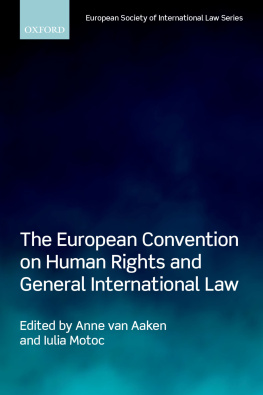

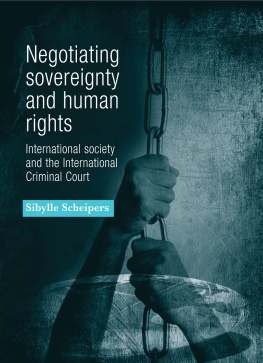
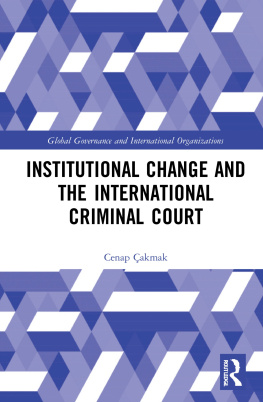
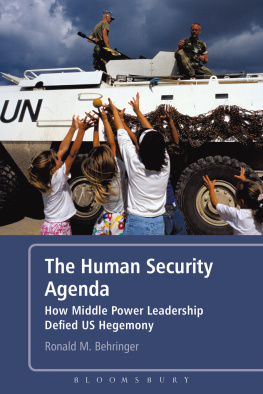
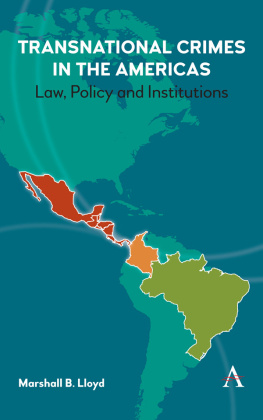
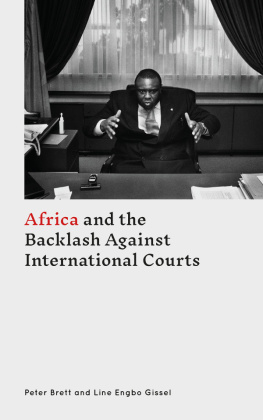
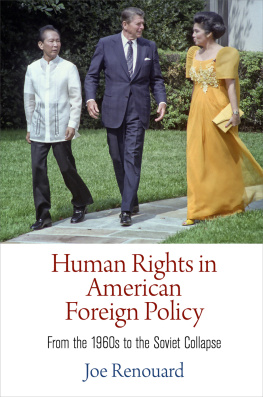
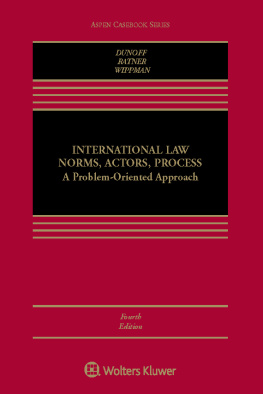
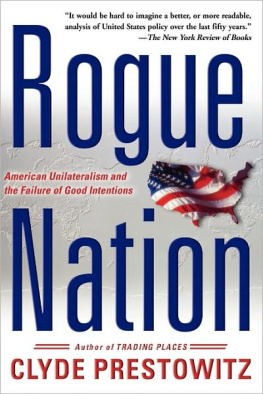

 The paper used in this publication meets the minimum requirements of American National Standard for Information SciencesPermanence of Paper for Printed Library Materials, ANSI/NISO Z39.481992.
The paper used in this publication meets the minimum requirements of American National Standard for Information SciencesPermanence of Paper for Printed Library Materials, ANSI/NISO Z39.481992.